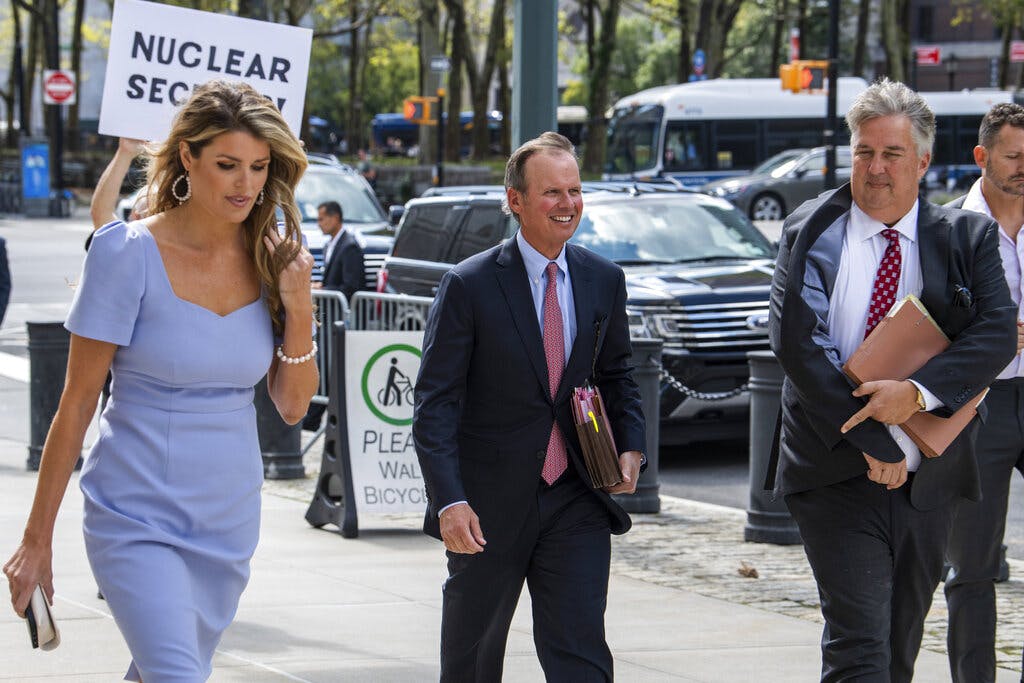‘You Can’t Have Your Cake and Eat It,’ Special Master Tells Trump’s Lawyers
First hearing suggests the president could look back with nostalgia on his time before Judge Cannon.

When it comes to special masters, President Trump could soon learn to be careful for what he wishes. Tuesday saw the first appearance of the Department of Justice and Mr. Trump’s legal teams before Judge Raymond Dearie. He’s a veteran jurist and the independent arbiter, and his task is to sift the documents found at Mar-a-Lago to determine which the government can use.
The venue for the battle over those records shifted Tuesday to Judge Dearie’s courtroom in Brooklyn from the friendly confines of Judge Aileen Cannon’s in south Florida. There, a hearing was held to set ground rules for his review, pending the DOJ’s appeal to the riders of the 11th United States Circuit Court of Appeals, which the DOJ wants to nix the special master altogether.
Early returns suggest that Mr. Trump could soon look back on his time before Judge Cannon with nostalgia. This is because Judge Dearie sharply challenged the position of Mr. Trump’s team on whether the one-time president’s lawyers are required to show their hand on whether Mr. Trump declassified a crucial set of documents.
Mr. Trump’s lawyers have thus far resisted such a step. They argued in a filing with Judge Dearie that they oppose any effort to “disclose specific information regarding declassification” at this stage of the investigation. They have not yet argued that Mr. Trump actually declassified the records in question, either in full or in part.
Despite maintaining that the president has the absolute right to effect such a declassification, the lawyers argue that they will be disadvantaged if forced to present “such a defense” short of “any subsequent indictment.” During the hearing, Judge Dearie expressed skepticism of that position, asking, “How am I going to verify the classification?”
The judge’s stance suggests that the government has already made an initial showing on this head to the judge’s satisfaction. Judge Dearie pointed out that the government provided “prima facie evidence” of classification in the form of the markings on the documents themselves, and that as far as he is concerned, “that’s the end of it.”
If Mr. Trump wants to challenge that designation, it behooves his team to make that argument quickly rather than wait for trial. Mr. Trump’s lead lawyer, James Trusty, pushed back, noting that “we’re not in a position nor should we be in a position” to “fully disclose a substantive defense.” He asserted that this posture is “not gamesmanship. It’s about not having seen the documents.”
Judge Dearie appeared largely unconvinced. He noted that “litigation strategy” would not factor into his set of recommendations to Judge Cannon and warned Mr. Trusty that “you can’t have your cake and eat it.” The zinger no doubt landed all the harder after Mr. Trump’s recent run of success led his representatives to Judge Dearie.
Yet it wasn’t all uphill for Mr. Trump’s team. In response to the government’s arguments that some documents are so sensitive that not even Mr. Trump’s lawyers will be able to view them, Mr. Trusty exclaimed that “it’s kind of astounding to hear the government say the president’s lawyers don’t have a need to know.”

